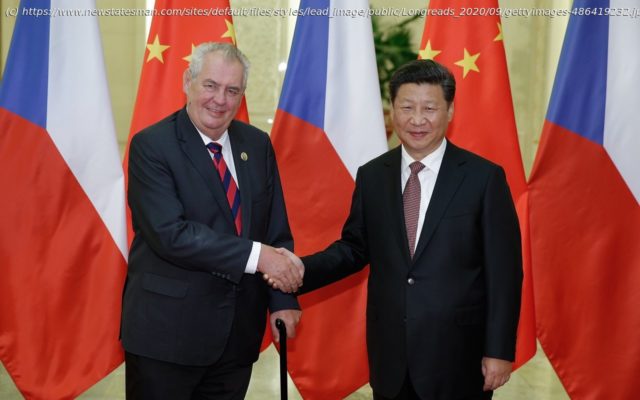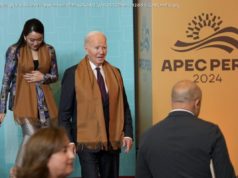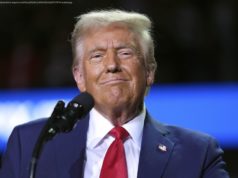How the rise and fall of a Chinese corporate giant turned the Czech Republic against Beijing.
You are browsing in private mode. To enjoy all the benefits of our website LOG IN or Create an Account In 2015, Chinese president Xi Jinping invited his Czech counterpart, the ostentatiously pro-China Milos Zeman, to a military parade in Beijing commemorating the end of the Second World War. Both leaders watched as thousands of troops from the elite units of the People’s Liberation Army and Second World War veterans marched to commemorate the defeat of fascism. The visit symbolised the growing closeness between the Czech Republic and China. Zeman, the only European leader present at the parade, had been making overtures to China since his election two years earlier. It was accompanied by the announcement of a series of Chinese investments in the Czech Republic, including the buyouts of the country’s leading football club, an airline, and a brewer. The deals were meant to herald a new era of Chinese influence in central Europe. A year after his trip to Beijing, Zeman reciprocated, inviting Xi to Prague. During the visit, the Czech president lavished praise on his counterpart, and announced that his country would become “an unsinkable aircraft carrier of Chinese investment expansion” in Europe, though formally foreign policy was the responsibility of the prime minister, not the president. Further deals were announced. Four years later, Zeman’s promise lies in tatters, even as he remains in office. Czech politicians from across the political spectrum have lined up to criticise China and side with self-ruled Taiwan, which China regards as a breakaway province. Prague’s mayor, Zdenek Hrib, flies Tibetan flags from City Hall and lost a sister-city agreement with Beijing after rejecting a clause on the One-China Policy he considered unacceptable. Milos Vystrcil, the president of the Czech Senate, visited Taipei this month, and declared “I am Taiwanese,” echoing John F. Kennedy’s Cold War-era “Ich bin ein Berliner” speech. A livid Chinese foreign minister spluttered that Vystrcil would “pay a high price for his short-sighted behaviour”, though he does not appear to have followed up on his threat. How could relations between the Czech Republic and China have soured so rapidly? The answer lies, in part, in promises of lavish Chinese investment which never materialised and clumsy attempts to build influence in national politics, which ended up backfiring. The saga sheds light on the chummy relationship between the Chinese state and favoured businesses – and demonstrates the limits of outsourcing foreign policy to private companies. **** It was initially intended that the investments in the Czech Republic announced by Xi would go via CEFC, an energy conglomerate that had grown to become one of China’s biggest companies. The firm was founded in 2002 by Ye Jianming, a businessman from Fujian province. In a 2016 interview, Ye told Fortune magazine his original pitch. He envisaged a private oil company that would operate in the gaps in the market left by China’s state-owned enterprises (SOEs), which dominate the domestic energy market. The SOEs found it difficult to close deals with foreign governments, which were often uneasy at dealing with companies controlled directly by the Chinese state. CEFC would fill that gap, offering access to the Chinese market without the political costs of dealing with SOEs. CEFC’s rise was stratospheric. As recently as 2017 it was ranked 222nd in the Fortune 500 with declared revenues of more than $43bn. Despite the company’s original purpose being to offer some distance from the Chinese government, it was never shy about functioning as a de facto arm of the People’s Republic. “CEFC is good at binding itself to state activities,” CEFC party secretary Jiang Chunyu told the Chinese website Caixin in an exposé later scrubbed from the Chinese internet. As Xi Jinping began wooing central and eastern European countries as part of China’s Belt and Road Initiative – its giant project to build new economic networks across the Eurasian landmass – CEFC’s investments often seemed to align with China’s foreign policy. In 2017, it announced a plan to buy a 14 per cent stake in Rosneft, the Russian oil giant, for about $9bn, as China cosied up to Russia in the wake of Western sanctions imposed after the annexation of Crimea. But perhaps the most notable example of CEFC’s business appearing to support Chinese statecraft was a series of investments promised by Xi during his visit to Prague, many of which were to go via CEFC. Among other investments, CEFC would buy stakes in Slavia Praha, the country’s top football club and J&T Group, a financial services company that would become the first Chinese-owned bank in Europe.






